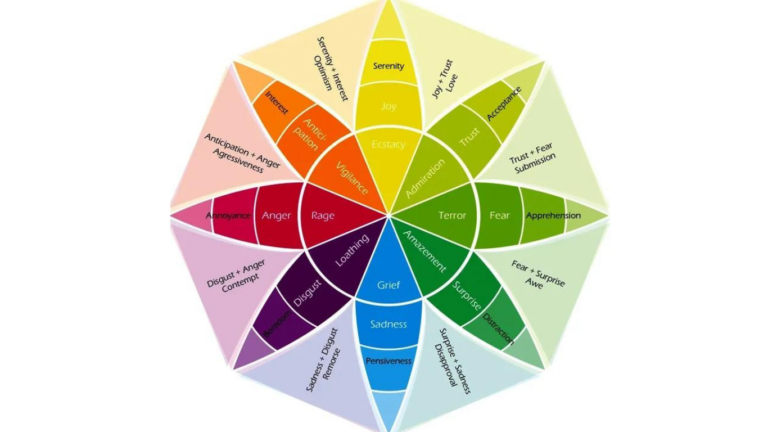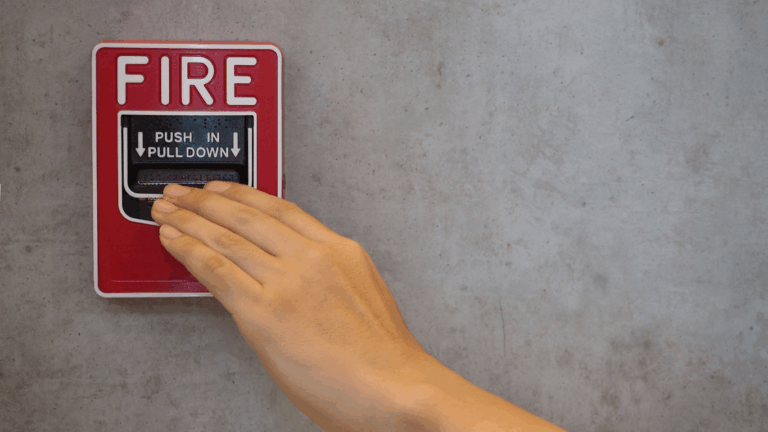Has chronic pain become your identity? Who are you without your pain? If you see yourself as a victim of pain, I want you to know that you are so much more than that. With some practice, pain will become an identity of your past, not your future. The role of identity in chronic pain is vital in recovery, especially when pain becomes your identity.
Do you see yourself as a chronic pain sufferer? This article is about the role the identities we attach to play in developing and healing chronic pain and how to detach from them to allow room for healing.

When I write about TMS, I feel compelled to tell my own story because I had symptoms of chronic pain and fatigue for three decades until I was able to recover and get back into life again. I feel like a bit of an expert.
Who are you?
Some people recover quickly. By understanding pain science, they may be able to reduce or eliminate their symptoms. The key to recovery is helping our survival brain feel safer; sometimes, the insight some receive from the knowledge or truth about why they are in pain is enough.
As most do, my healing path has taken some time. In fact, I’m still on the journey. It doesn’t end for most of us when our pain goes away. We learn a lot about ourselves, and we just keep on learning.
Identity is a big factor in the evolution of mind-body pain in TMS, and healing is found in learning the truth about who you are.
What is an identity?
We all have many identities or ideas about how we see ourselves. Psychology Today defines identity as “The memories, experiences, relationships, and values that create one’s sense of self. This amalgamation creates a steady sense of who one is over time, even as new facets are developed and incorporated into one’s identity.”
Examples of identities
- Mother/Father
- Sister/Brother
- Smart/Dumb
- Athletic
- Tall/Short
- Thin/Heavy
- Occupation: Teacher, Accountant
- Traveler
- Empath
- Sickly/Healthy
- Friend
Are our identities helping us or hurting us?
We all have some or many of these identities, and there are way too many to list. Identities aren’t a problem unless we are trying to live up to one that isn’t true to us or doesn’t help how we feel about ourselves.
For example, I am an introvert. I know more introverts than extroverts, so being an introvert isn’t a problem. However, I didn’t feel accepted by family members who were extroverts.
I often did things I didn’t want to do and acted in ways that were not true to me because I didn’t like being so introverted. I wasn’t living authentically.
We all have been there, but it can be problematic when it becomes a way of life. It’s hard to feel happy when we aren’t living our truth, and it creates a sense of danger in our survival brain.
Identity Issues and Chronic Pain
TMS happens when our primitive brain feels threatened and signals pain, even when there is no danger. The role of identity in TMS is relatively simple to explain. When we feel pressure because we cannot measure up to who we think we should be, we send danger signals to our brains.
We all unconsciously create identities that we try to live up to. I mentioned how I identified as an introvert, which wouldn’t have been a problem except for the meaning I attached to it.
I also saw myself as “hard-working.” I developed this identity for a good reason. My dad grew up on a farm in North Dakota with five siblings, and they got up early to feed the farm animals before school. He was a hard worker and instilled this in me.
Identities feel safe
Sometimes, our identities keep us safe. I believed that to be accepted, I had to be a hard worker, and my folks would be proud of me.
It’s good to work hard, but working hard can become unhealthy when we don’t practice self-care, and this is what happened to me. When fear becomes a driving factor for an identity, common sense takes a back seat.
Part of recovering from chronic pain is understanding where we have been living inauthentically and then making changes in our lives that are true to our wants, needs, and values.
Many people with mind/body pain have unmet needs and unfulfilled dreams and are not aware that they are sacrificing too much. They think their wants and needs are selfish and unreachable.
Living Authentically
But this is never the case. There is always a way to live our truths, and people respect us more for it. I help my clients identify what they want and need. Their truth is not their kids’, spouses’, or parents.’
You can still be a good mom, dad, or friend even when you put yourself first. You don’t have to sacrifice your truth. It’s just a habit that has been passed down. You are allowed to do it differently.
Can Pain Become an Identity?
Pain can also become an identity. When we have chronic pain, our life becomes about getting well. We go to support groups and, in my case, even run a support group. We befriend people with the same pain condition and talk about the latest doctor appointments and practitioners we have been to.
It is tough to get well this way. When pain becomes our identity, we are constantly reinforcing it. As mentioned before, there is safety in having identities, even when they aren’t positive. Identities are hard to give up. It’s like giving up a part of ourselves.
We unconsciously believe that our identities are who we are. But pain? Who wants to be in pain? Pain can be just as hard to give up as any identity because pain can become who we think we are.
Pain became my new identity. I ran a support group, went to doctor after doctor looking for an answer, and even went on disability for twenty years. All of these things kept reinforcing danger.
How do we let go of identities that don’t serve us?
It takes self-love and commitment to become aware of your beliefs about yourself. First, you must feel you are worth it, and I’m here to tell you you are. You can begin by answering these four questions:
- When I sit with myself in stillness and go into my body, what do I want that I don’t have now that would make me happy? Name two or more things.
- What am I doing in my life that I don’t want to do anymore? What do you want to say ‘no’ to?
- Who do you want to say ‘no’ to?
- What are two beliefs about yourself that aren’t serving you anymore?
- How much of your identity has pain taken over?
Take back your power.
Awareness is always the first step; answering these questions will give you that. Once you can let go of the identities that no longer serve you and start living more of your truth, your life will open up in ways you never thought imaginable.
When we give up pressure, our brains begin to feel safer. When our brains feel safe, pain is no longer needed to protect us. We stop reinforcing pain when we stop focusing on it so much.
Once I freed myself of the pressure and fear I attached to being a hard worker, a good mom, good this and good that, I just became me. I’m not perfect, but I know more about what I want and need now; I know what makes me feel free and happy and what makes me feel trapped and oppressed.
I chose the former, and I hope you do too.
What identities do you take on that you want to detach from? Please comment in the comment section below.
Read Stacey’s Recovery Story to find out more about her journey with chronic pain.
Click here for Pain Recovery Coaching, email us at [email protected], or fill out our contact form.






